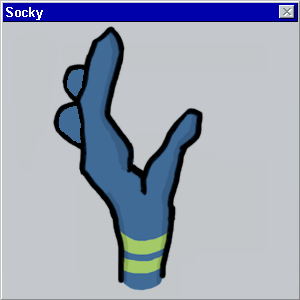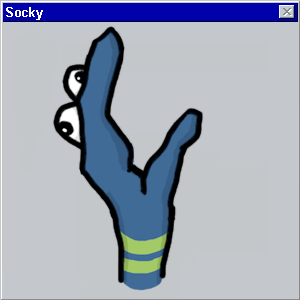The "bug model" of mistakes
September 24, 2012 4:56 PM Subscribe
Often, I think mistakes are more like bugs than errors.
Yes yes yes! I've tried to explain this to my kids about "accidents" but I haven't been able to. This won't help me, but now at least I understand it better.
Child is racing around wildly, throwing pillows, tackling other children and eventually knocks the TV over.
Me: Now look!
Child: I didn't try to!
Me: There is a difference between "not trying to" and "trying not to".
Now I can say: This wasn't an error. This was the pre-ordained result of faulty behavior.
posted by DU at 5:38 PM on September 24, 2012 [4 favorites]
Yes yes yes! I've tried to explain this to my kids about "accidents" but I haven't been able to. This won't help me, but now at least I understand it better.
Child is racing around wildly, throwing pillows, tackling other children and eventually knocks the TV over.
Me: Now look!
Child: I didn't try to!
Me: There is a difference between "not trying to" and "trying not to".
Now I can say: This wasn't an error. This was the pre-ordained result of faulty behavior.
posted by DU at 5:38 PM on September 24, 2012 [4 favorites]
Mattoxic, the article explains what that means. Our bodies usually seem transparent to us. Normally, I never think about contracting abductors and extensors, I just grab things and push keys. She wants pianists to try thinking of their hands as being like robotic arms controlled by their minds. Once they've identified what muscle contractions they've been unconsciously executing to perform a task, they can debug that sequence of contractions. Practice isn't about reducing the overall error rate by repetition of the task as a whole (she thinks) but about unlearning specific bad habits that contribute to the error rate.
More generally, don't try to solve your problems by trying harder or give up and call yourself a weakling. Find the unconsciously repeated patterns in the way you do business that are causing failure and revise them. You might be slow getting out of bed in the morning not because you're not a morning person but because you need to move your alarm clock to the other side of the room.
Good article. It's making me wish I'd come with internal documentation.
posted by justsomebodythatyouusedtoknow at 5:40 PM on September 24, 2012 [3 favorites]
More generally, don't try to solve your problems by trying harder or give up and call yourself a weakling. Find the unconsciously repeated patterns in the way you do business that are causing failure and revise them. You might be slow getting out of bed in the morning not because you're not a morning person but because you need to move your alarm clock to the other side of the room.
Good article. It's making me wish I'd come with internal documentation.
posted by justsomebodythatyouusedtoknow at 5:40 PM on September 24, 2012 [3 favorites]
this is basically in a nutshell my entire perspective about why people do what they do. I think most people who believe in determinism or behavior analysis or systems analysis would agree.
People don't exist within a vacuum. You have to take the environment into account - including the environment that is the person's body and history and memories and habits. And then you take the person out of it and all you have left is a nicely deterministic completely acceptable non-moral actor, and the whole world makes so much more sense.
posted by rebent at 5:42 PM on September 24, 2012 [2 favorites]
People don't exist within a vacuum. You have to take the environment into account - including the environment that is the person's body and history and memories and habits. And then you take the person out of it and all you have left is a nicely deterministic completely acceptable non-moral actor, and the whole world makes so much more sense.
posted by rebent at 5:42 PM on September 24, 2012 [2 favorites]
This is a great article.
How are you going to get better until you figure out what's wrong with what you're already doing? It's really more an exploratory process -- where is the bug, and what can be done to dislodge it?
I've had various jobs in which I wind up having to teach people the intricacies of Excel formulas. I have definitely noticed that this kind of patient, observant, careful, scientific process of "Start at the beginning, observe and narrow down until the problem reveals itself" is totally foreign to people who aren't familiar with programming concepts.
I also get really frustrated when dealing certain parties who shall remain nameless who have obvious problems with obvious (to me) solutions who see their problems something to be laboriously climbed up "some day" instead of carefully dismantled right now.
posted by bleep at 5:53 PM on September 24, 2012 [1 favorite]
How are you going to get better until you figure out what's wrong with what you're already doing? It's really more an exploratory process -- where is the bug, and what can be done to dislodge it?
I've had various jobs in which I wind up having to teach people the intricacies of Excel formulas. I have definitely noticed that this kind of patient, observant, careful, scientific process of "Start at the beginning, observe and narrow down until the problem reveals itself" is totally foreign to people who aren't familiar with programming concepts.
I also get really frustrated when dealing certain parties who shall remain nameless who have obvious problems with obvious (to me) solutions who see their problems something to be laboriously climbed up "some day" instead of carefully dismantled right now.
posted by bleep at 5:53 PM on September 24, 2012 [1 favorite]
Yes! I cannot hit the tab key without hitting cap lock even though I do it 100 times a day. By now, backpacking twice, releasing cap lock and re-typing what I meant to type is part of my muscle memory. I need a typing version of her master piano teacher to retrain my typing.
posted by Ad hominem at 6:02 PM on September 24, 2012
posted by Ad hominem at 6:02 PM on September 24, 2012
That was a very interesting article. I'm struggling with learning French and I keep thinking I just need to work harder at it. This article has given me food for thought.
posted by shoesietart at 6:16 PM on September 24, 2012
posted by shoesietart at 6:16 PM on September 24, 2012
bleep: "I also get really frustrated when dealing certain parties who shall remain nameless who have obvious problems with obvious (to me) solutions who see their problems something to be laboriously climbed up "some day" instead of carefully dismantled right now."
Mine is called "Jane".
(I'm gonna be so fucked when I get home…)
posted by Pinback at 8:22 PM on September 24, 2012
Mine is called "Jane".
(I'm gonna be so fucked when I get home…)
posted by Pinback at 8:22 PM on September 24, 2012
backpacking twice, releasing cap lock and re-typing what I meant to type is part of my muscle memory.
In pretty good shape, eh?
posted by not_that_epiphanius at 8:34 PM on September 24, 2012
In pretty good shape, eh?
posted by not_that_epiphanius at 8:34 PM on September 24, 2012
O ya, this is a principle of (enlightened) music education, wherein simply repeating a passage you're having problems with is known as "practicing your mistakes". It can go against all your instincts, but you've got to back up and start again at glacier tempo so you can see what's going on with your fingers/body. I hear tennis players do this too, slow down so they look like they're doing tai chi.
posted by Rich Smorgasbord at 9:48 PM on September 24, 2012
posted by Rich Smorgasbord at 9:48 PM on September 24, 2012
In pretty good shape, eh?
Backspacing twice. I clearly need help. I'm going to see if I can debug my typing. I am certainly praciticing my mistakes.
posted by Ad hominem at 9:54 PM on September 24, 2012
Backspacing twice. I clearly need help. I'm going to see if I can debug my typing. I am certainly praciticing my mistakes.
posted by Ad hominem at 9:54 PM on September 24, 2012
As a teacher, indeed as a teacher who works with a lot of engineers, I frequently explain that a lot of my job is debugging.
Seeing this in print has made me think, though. That important distinction between trying to do the right thing and not succeeding (try harder), and trying to do the wrong thing and succeeding (trying harder makes things worse) is something to chew on.
posted by Wrinkled Stumpskin at 10:40 PM on September 24, 2012 [1 favorite]
Seeing this in print has made me think, though. That important distinction between trying to do the right thing and not succeeding (try harder), and trying to do the wrong thing and succeeding (trying harder makes things worse) is something to chew on.
posted by Wrinkled Stumpskin at 10:40 PM on September 24, 2012 [1 favorite]
It can go against all your instincts, but you've got to back up and start again at glacier tempo so you can see what's going on with your fingers/body.
We would do this sometimes in my taiko group. (Not always possible due to physics, but there's a difference between botched music and botched dance.) Surprisingly often, the piece seemed harder to play when we took it slower; a sign that we had glossed over some things at speed.
posted by Foosnark at 5:46 AM on September 25, 2012
We would do this sometimes in my taiko group. (Not always possible due to physics, but there's a difference between botched music and botched dance.) Surprisingly often, the piece seemed harder to play when we took it slower; a sign that we had glossed over some things at speed.
posted by Foosnark at 5:46 AM on September 25, 2012
In some fields, this is very obvious. I've been in martial arts class where an instructor told me to move my feet a few inches in one direction or another, and suddenly an entire sequence of motion fell into place. I've had a teacher move my hand on a paintbrush, and had a crude sketch turn into something that could almost be confused with art.
It really is amazing how seemingly small factors can cause an entire range of errors, and how the best teachers learn to spot those.
We would do this sometimes in my taiko group. (Not always possible due to physics, but there's a difference between botched music and botched dance.) Surprisingly often, the piece seemed harder to play when we took it slower; a sign that we had glossed over some things at speed.
posted by Foosnark at 5:46 AM on September 25 [+] [!]
This is something I've learned again, and again, and again in martial arts.
posted by Stagger Lee at 8:58 AM on September 25, 2012
It really is amazing how seemingly small factors can cause an entire range of errors, and how the best teachers learn to spot those.
We would do this sometimes in my taiko group. (Not always possible due to physics, but there's a difference between botched music and botched dance.) Surprisingly often, the piece seemed harder to play when we took it slower; a sign that we had glossed over some things at speed.
posted by Foosnark at 5:46 AM on September 25 [+] [!]
This is something I've learned again, and again, and again in martial arts.
posted by Stagger Lee at 8:58 AM on September 25, 2012
« Older Adobe Edge Web Fonts | The Amazing(ly Connected) Dave Newer »
This thread has been archived and is closed to new comments


D'WAH? Your mind!?
posted by mattoxic at 5:12 PM on September 24, 2012